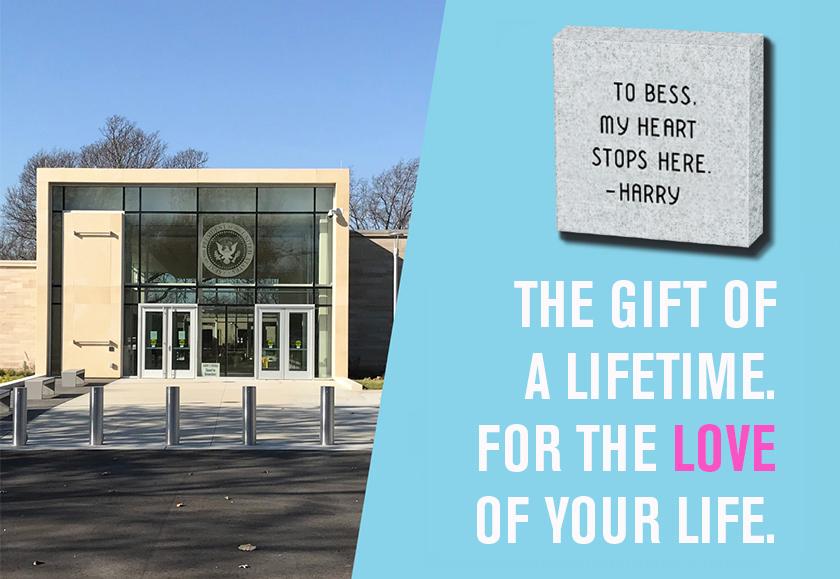This Day In History – September 2, 1945 | September 2, 2021
PICTURE HISTORY
THE SURRENDER OF JAPAN | SEPTEMBER 2, 1945
“We hereby proclaim the unconditional surrender to the Allied Powers of the Japanese Imperial General Headquarters and of all Japanese armed forces and all armed forces under Japanese control wherever situated.”
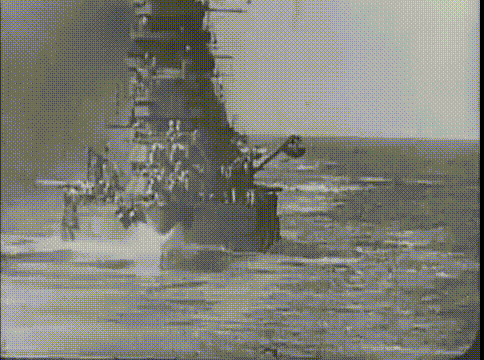
Historic Headlines | August 13, 2021
V-J DAY | AUGUST 14, 1945
“I HAVE RECEIVED THIS AFTERNOON A MESSAGE FROM THE JAPANESE GOVERNMENT…”
At 7 p.m. on Tuesday, August 14, 1945, President Truman announced to reporters gathered in the Oval Office that Japan had surrendered unconditionally to the Allies, effectively ending World War II. Read More
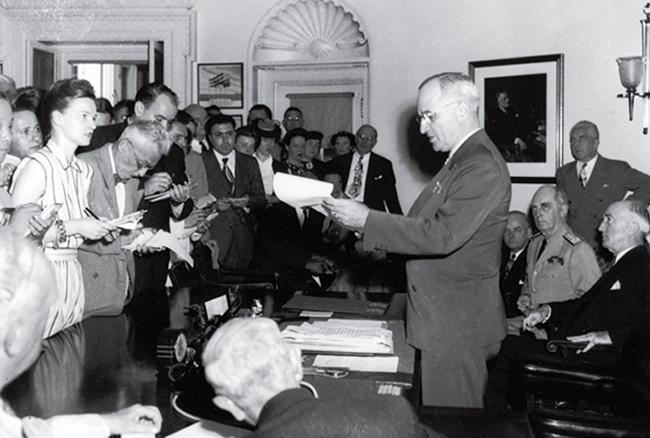
TRU History | August 6, 2021
Surplus WWII-Era Purple Hearts Still Being Awarded
A half-million medals are a reminder of the lives not lost in the Pacific Theater during World War II.
By D. M. Giangreco
Excerpted from “75 Years Later, Purple Hearts Made for An Invasion of Japan are Still Being Awarded,” originally published by George Washington University’s History News Network.

Ambassador Power is WILD About Harry! | April 12, 2021
Harry S. Truman Legacy of Leadership Award
The Truman Library Institute proudly announces that the 2021 Harry S. Truman Legacy of Leadership Award will be presented to Ambassador Samantha J. Power during the 22nd Annual Wild About Harry celebration on May 6, 2021. Today, on the 76th anniversary of Harry Truman’s ascension to the presidency, Ambassador Power shared this personal video greeting reflecting on Truman’s global leadership and enduring legacy.

Passover 1945 | April 2, 2021
Vice President Truman’s Passover Address to the the U.S. Armed Forces in Europe
The traditional Passover greeting, chag Pesach samech, must have carried indescribable joy in 1945. The Second World War was nearly over, and victory over Nazi Germany was certain when, on March 26, then-Vice President Truman delivered his Passover address at the Jewish Welfare Board. His remarks, below, were broadcast from Washington, D.C. to the “Jewish men and women in the Armed Forces.”
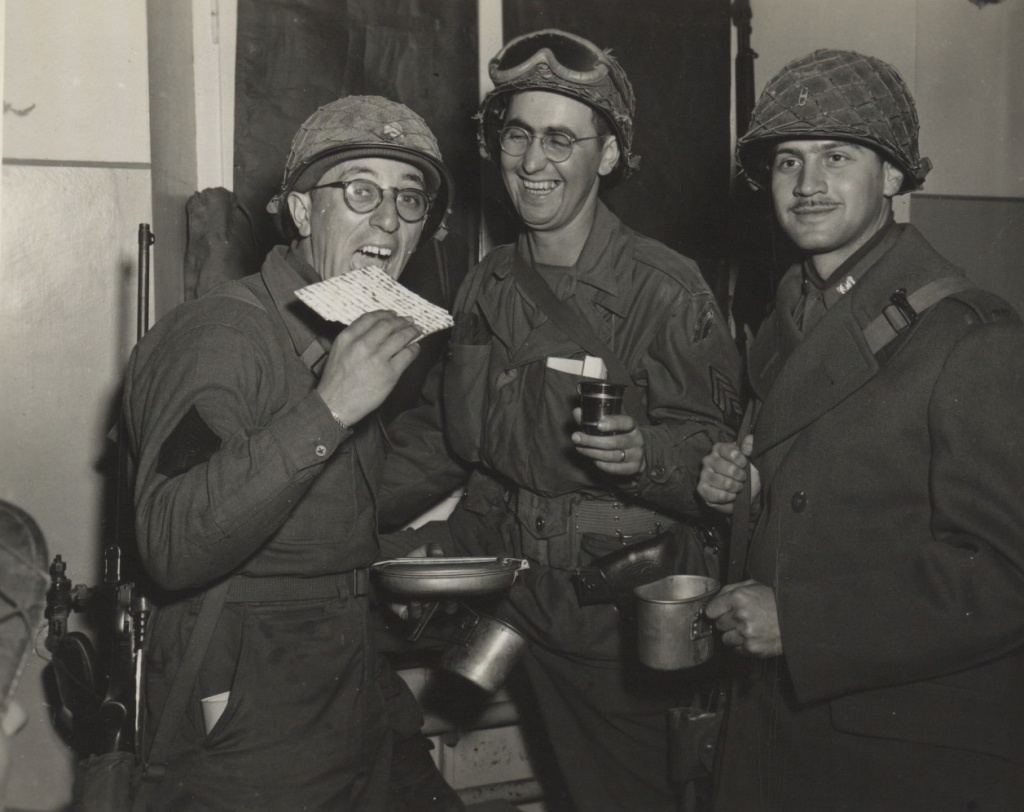
TRU Digital Digest | March 31, 2021
Women’s History Month

“AMERICAN WOMEN HAVE BUILT FOR THEMSELVES A PROUD RECORD OF ACHIEVEMENT, OF UNSELFISH DEVOTION TO THE PUBLIC WELFARE, OF COURAGEOUS INDUSTRY ADVANCING EVERY GOOD CAUSE.”

As Women’s History Month 2021 draws to a close, we are dedicating our March Digital Digest to Harry Truman and the trailblazers whose leadership, decisions and courage helped advanced women’s rights in post-WWII America.
Enjoy this digital dive into women’s history!
TEAM TRUMAN
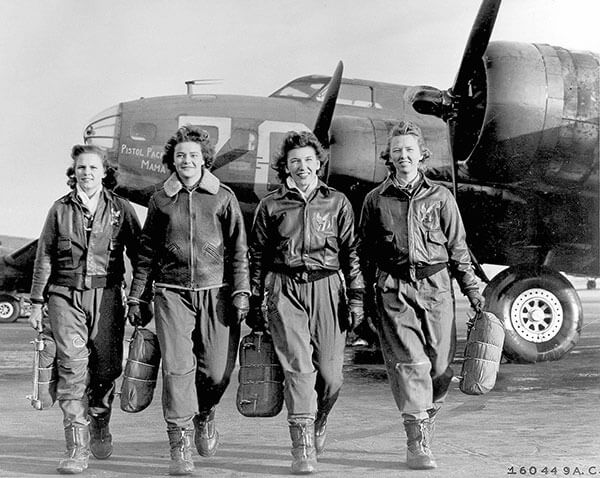
Truman and Women’s Rights | March 1, 2021
The Women’s Armed Services Integration Act
Of the many decisions, acts, policies and executive orders signed by former President Harry S. Truman, one of the most famous remains his decision to desegregate the military. Truman’s Executive Order 9981 (July 26, 1948) figures prominently in ongoing discussions on civil rights and equality today.
Yet while Executive Order 9981 is perhaps one of Truman’s most progressive pieces of legislation, his decision to sign the Women’s Armed Services Integration Act in the same year suggests Truman recognized a need for even more equalizing change in the United States military. Read More
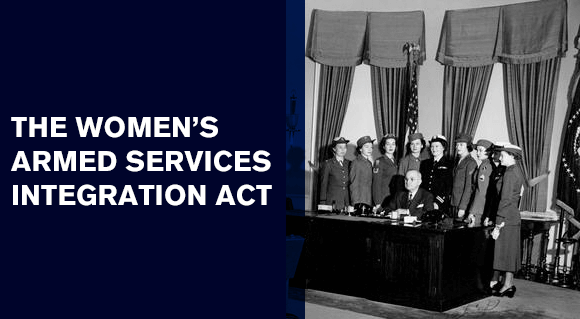
Camp David (Or Truman’s Shangri-La) | February 16, 2021
HISTORIC PHOTOS OF CAMP DAVID
Nestled in the Catoctin Mountain Park in Frederick County, Maryland, is Camp David, a retreat for use by the President of the United States.
Officially a U.S. Navy installation, the facility was originally built by the Works Progress Administration as a camp for government employees, opening in 1938. President Franklin D. Roosevelt took it over and named it “Shangri-La,” for the mountain kingdom in Lost Horizon, the 1933 novel by James Hilton. It was later renamed by President Dwight D. Eisenhower in honor of his then-five-year-old grandson, Dwight David Eisenhower II.
Over the years, American presidents and their families have used it for a variety of reasons. Some spent weekends there relaxing with their families. Others have used it to study, write, or confer with top advisers. A few have used it to conduct global diplomacy and forge historic peace agreements. During his first visit to Camp David, President Biden played Mario Kart with his granddaughter Naomi (and won!). Read More
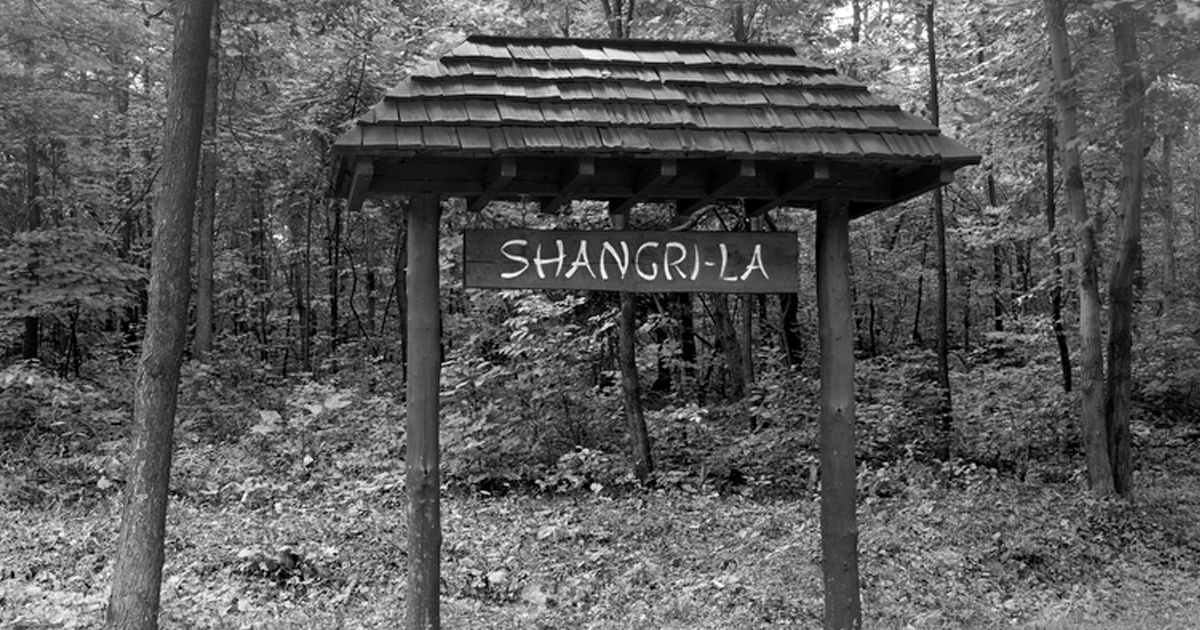
The Daughters of Yalta | February 12, 2021
The Daughters of Yalta
A Distinguished Author Event Celebrating the 136th Birthday of First Lady Bess Wallace Truman
Featuring Catherine Grace Katz
Saturday, February 13 | 2 PM CST
Please join us online for the 2021 Bess Wallace Truman Birthday Celebration featuring Catherine Grace Katz, author of The Daughters of Yalta. Read More
A Lasting Valentine’s Day Gift | February 12, 2021
A Lasting Valentine’s Day Gift
The Perfect Personalized Gift for Your Sweetheart
VALENTINE’S DAY IS SUNDAY, FEBRUARY 14
Please Order by Friday, February 12
Profess your love on Valentine’s Day with a custom engraved Valentine’s Day Brick – a unique gift that will last forever. Order by February 12 to receive a downloadable certificate announcing your thoughtful gift. Read More
